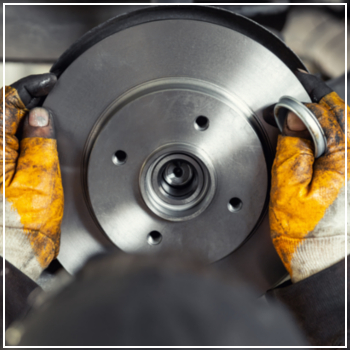7 Signs Your Brakes Need Service
Your car's braking system relies on several key components, including the rotors located behind each wheel and the calipers that apply pressure to those rotors when you press the brake pedal. This pressure slows the wheels, allowing the car to stop safely. Meanwhile, the brake pads, which bear the brunt of the wear, should be replaced when their thickness decreases to 3mm or less. Additionally, brake fluid ensures smooth operation throughout the system, though contaminants can degrade its performance over time. To keep yourself safe and prevent expensive repairs, pay attention to the following warning signs that your brakes need attention. If you find yourself pressing the brake pedal farther than usual just to bring your car to a halt, it could signal a problem with your brake system. Normally, the brake pedal should feel firm and responsive underfoot. A softer pedal might suggest moisture or air has infiltrated the brake fluid or that there's a leak somewhere in the lines. In such cases, you might need professional assistance to bleed or flush the lines and replace the fluid. Similarly, excessive wear on the brake pads could lead to similar symptoms, making it harder to stop the car effectively. Do you notice that your car doesn't stop as quickly as it used to? Known as "brake fade," this condition puts extra strain on your rotors and accelerates pad deterioration. It often requires you to press the pedal earlier or harder than before, yet still fails to provide reliable stopping power. This situation not only compromises safety but also increases the likelihood of costly repairs down the road. Odd sounds coming from your brakes can point to significant wear or damage: Notice any pulling sensations when you apply the brakes? While this behavior sometimes results from suspension problems, it can also stem from uneven brake pad wear due to improper wheel alignment or lack of rotation. Ignoring this issue risks damaging the steering rack, wheel bearings, and ball joints over time. Furthermore, debris accumulation in the brake fluid could contribute to this phenomenon. Alternatively, malfunctioning pistons inside the calipers might fail to operate correctly, disrupting synchronized movement across all four wheels. Another alarming symptom involves feeling vibrations while braking. Most of these disturbances originate either from the brakes themselves or the steering column. Such vibrations often indicate warped or excessively worn rotors, affecting their interaction with the brake pads. Continued vibration will inevitably cause uneven pad wear, reducing overall effectiveness and shortening their lifespan. A burnt smell emanating from beneath your hood shouldn't be ignored—it could signify an oil or engine-related problem. However, it might also serve as a warning that your brakes are overheating. Beyond being unpleasant, such overheating risks boiling the brake fluid or damaging the calipers. Driving further without addressing these concerns poses serious risks, particularly if visible smoke appears near the wheels. Your vehicle's dashboard brake warning light serves as another important indicator that maintenance is necessary. Depending on the model, this alert might appear based on preset mileage thresholds established by manufacturers or triggered by specific diagnostic codes related to low fluid levels, leaks, or severely worn pads. Regardless of the exact cause, ignoring this signal jeopardizes both driver comfort and passenger safety. Have you encountered any of these issues recently? Consider scheduling an appointment at DaSilva’s Auto Body for comprehensive brake inspections and repairs tailored specifically to meet your needs. Your peace of mind—and wallet—will thank you! SHAOXING KEQIAO FANEVER IMPORT AND EXPORT CO., LTD , https://www.sxfanever.com Many drivers overlook brake maintenance until they experience noticeable issues, such as longer stopping distances or grinding noises. Since brakes are critical for vehicle safety, regular checks and maintenance are vital.
Many drivers overlook brake maintenance until they experience noticeable issues, such as longer stopping distances or grinding noises. Since brakes are critical for vehicle safety, regular checks and maintenance are vital.Sluggish Brake Response
Prolonged Stopping Distance
Unusual Noises
Uneven Steering During Braking
Shaking or Vibrations
Burning Odor
Dashboard Warning Light